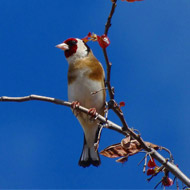EU court rules against bird trapping in Malta

Some 110,000 finches are thought to have been caught by hunters in Malta since 2014.
An EU court has ruled Malta’s practice of trapping goldfinches ‘barbaric’ and ‘unsustainable’.
According to The Guardian, the island now faces huge fines unless it brings an end to a derogation that allows the birds to be caught.
Ariel Brunner, senior head of policy at BirdLife, said: “Today’s court judgment sends a message that the rule of law must be respected. It should mark the end of indiscriminate trapping, which is a completely unsustainable and barbaric practice.”
Since the derogation was introduced in 2014, some 110,000 finches are thought to have been caught by hunters. The birds are usually kept in tiny cages for their song or traded.
According to BirdLife International, most of these birds die after some time, while others are kept in an attempt to breed them in captivity. The birds that do survive are used to attract others the following season.
Under the European Birds Directive, trapping is not allowed and bans the use of nets as a means of capturing birds.
When Malta agreed to join the EU in 2004, it agreed that it would phase out the practice by 2009. However, it has continued to a lesser extent under the guise of the legal trapping season for song thrush and the golden plover.
The EU ruling notes that trapping in Malta ’is so intensive that only a handful of each of the common finch species regularly breed on the islands, whereas they breed in high numbers in other areas of the Mediterranean”.



 The RCVS has announced a new version of its 1CPD mobile app, with enhanced features for veterinary surgeons and veterinary nurses to record their continuing professional development.
The RCVS has announced a new version of its 1CPD mobile app, with enhanced features for veterinary surgeons and veterinary nurses to record their continuing professional development.